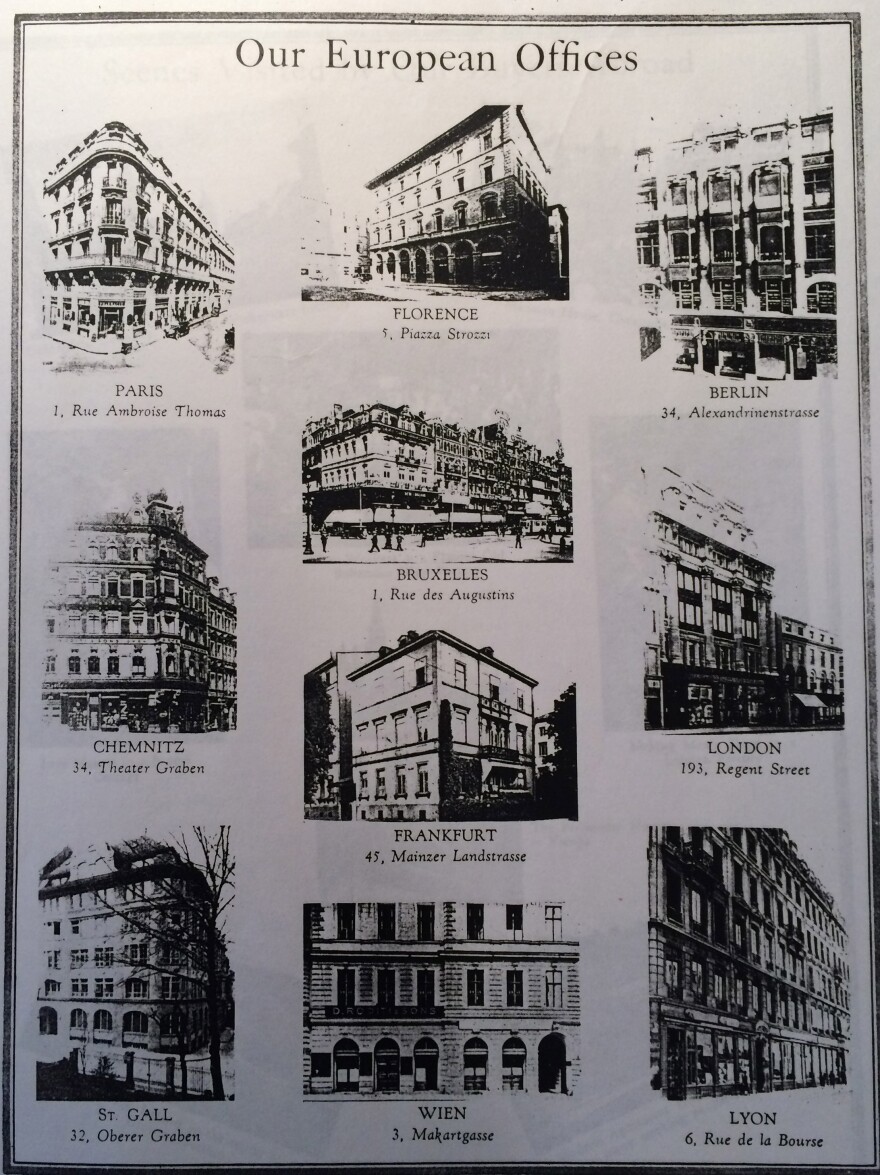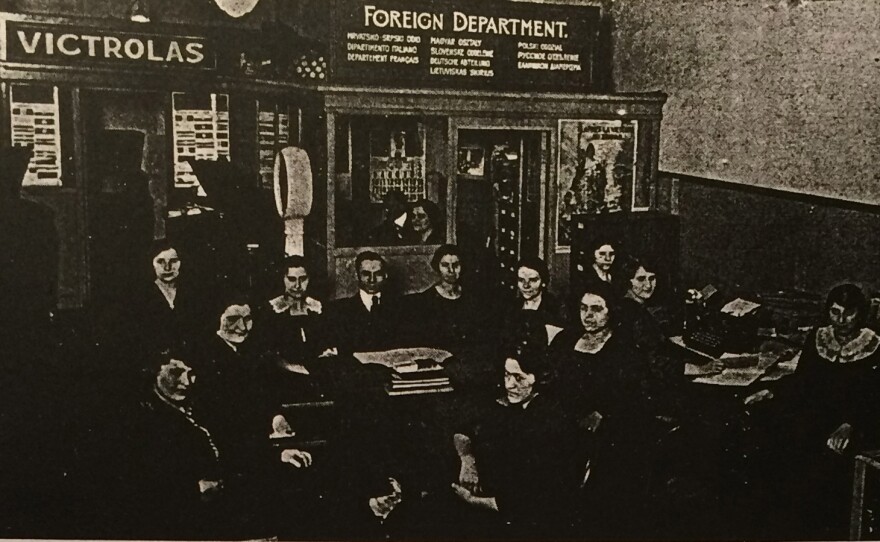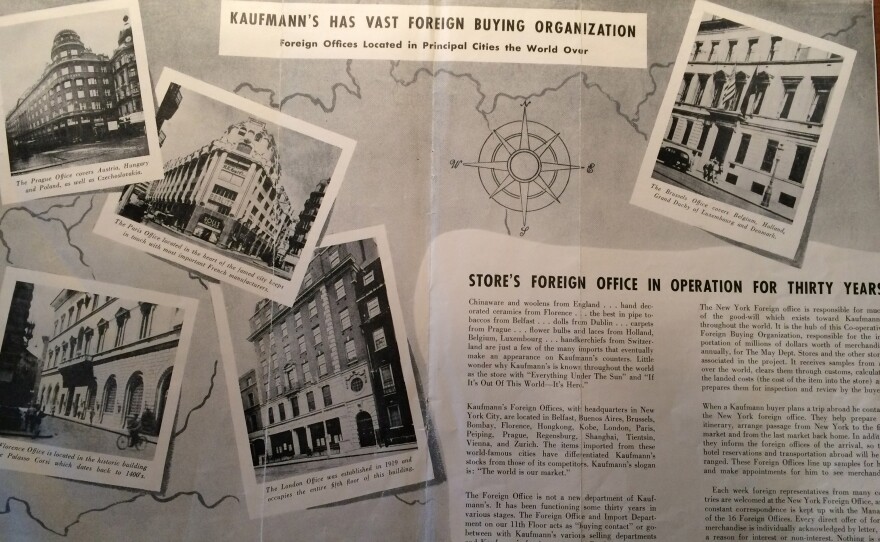“There’s Florence and London and Paris and Prague and Brussels.”
Lina Insana, chair of the department of French and Italian at the University of Pittsburgh, points to a spread from the Kaufmann's department store’s in-house magazine, Storagram, which proclaims the 30th anniversary of the “Foreign Office.”
“They used these foreign offices as proof of the quality of their merchandise—how up to date that merchandise was, how up to the minute the styles were,” Insana said.
At the time, many department stores had buyers overseas. But Kaufmann’s had something else, the inverse of its Foreign Office with its buyers in Buenos Aires and Shanghai and Bombay: the stateside Foreign Department, smack dab in the middle of Pittsburgh.
“In this Foreign Department, all of the sales clerks, who were both men and women, were available to a huge range of immigrant customers,” said Insana.
Fourteen clerks spoke just as many languages: French, Italian, Serbian and Croatian; German, Russian, Greek and Polish — even “Jewish” is listed as a language.
“I love that Jewish is a language,” Insana said, laughing. “You know, it’s not a language, but was it Hebrew, was it Yiddish? Who knows?”

While other department stores offered interpretation services to the exploding immigrant populations across the United States, Insana said the Kaufmann family felt doing so was part of their civic duty.
It’s not entirely clear when the foreign department was started or when it ended, or exactly where in the store it was located. But what is clear is that it was about more than just shopping, said Insana.
“They stocked this foreign department with newspapers and magazines from all of these different countries. They were intentionally trying to foster a welcoming space. They really saw this as part of their mission…to help in the assimilation process,” she said.
Lizabeth Cohen, professor of American studies at Harvard University, researched consumerism in the 20th century. While Kaufmann’s may have felt a duty to help newly arrived Pittsburghers, it was also good business, she said.
“It was in the interest of these employers like the Kaufmann management to try to make their department stores a welcome home to this potentially large consumer market,” Cohen said.
She added that buying things has long been an expression of nationalism.
“If you think about the very frequently used term of the 'American Dream,' we’re generally talking about economic success,” she said.
Imagine moving to Pittsburgh from, say, Russia. In 1915. At that point, nearly 30 percent of the city’s population was foreign-born. Walking down Smithfield Street would have been part of a jumble of people and languages. You might have been juggling questions of identity — the world was at war, who were you loyal to? You might have asked 'Who am I?' Can you have considered yourself both Russian and American? And there were practical concerns. The question of what to buy where became part of settling into an identity, too, she said.
“This big influx of immigrants, for many of them acquiring material goods was a very important marker for them of becoming American and of succeeding in this new land that they had come to,” she said.
Mary Antin was a Jewish woman who emigrated from Russia in the 1890s to Boston. She wrote in her autobiography, “We had achieved a carpet.” That one sentence makes the process of adopting a new place just that, a process, an experience immigrants across the country would have had in common.
The Foreign Department exemplifies how difficult it has always been to move from one culture to another, said Insana.
“I think at the moment we like to indulge in the myth that identity is uncomplicated and simple. And well, you came here to work and you came here to find a new life and so, of course, you just unproblematically became American,” she said.
That’s never really been the case, said Insana. It’s a negotiation.
90.5 WESA Celebrates Inventing Pittsburgh is supported by UPMC.


